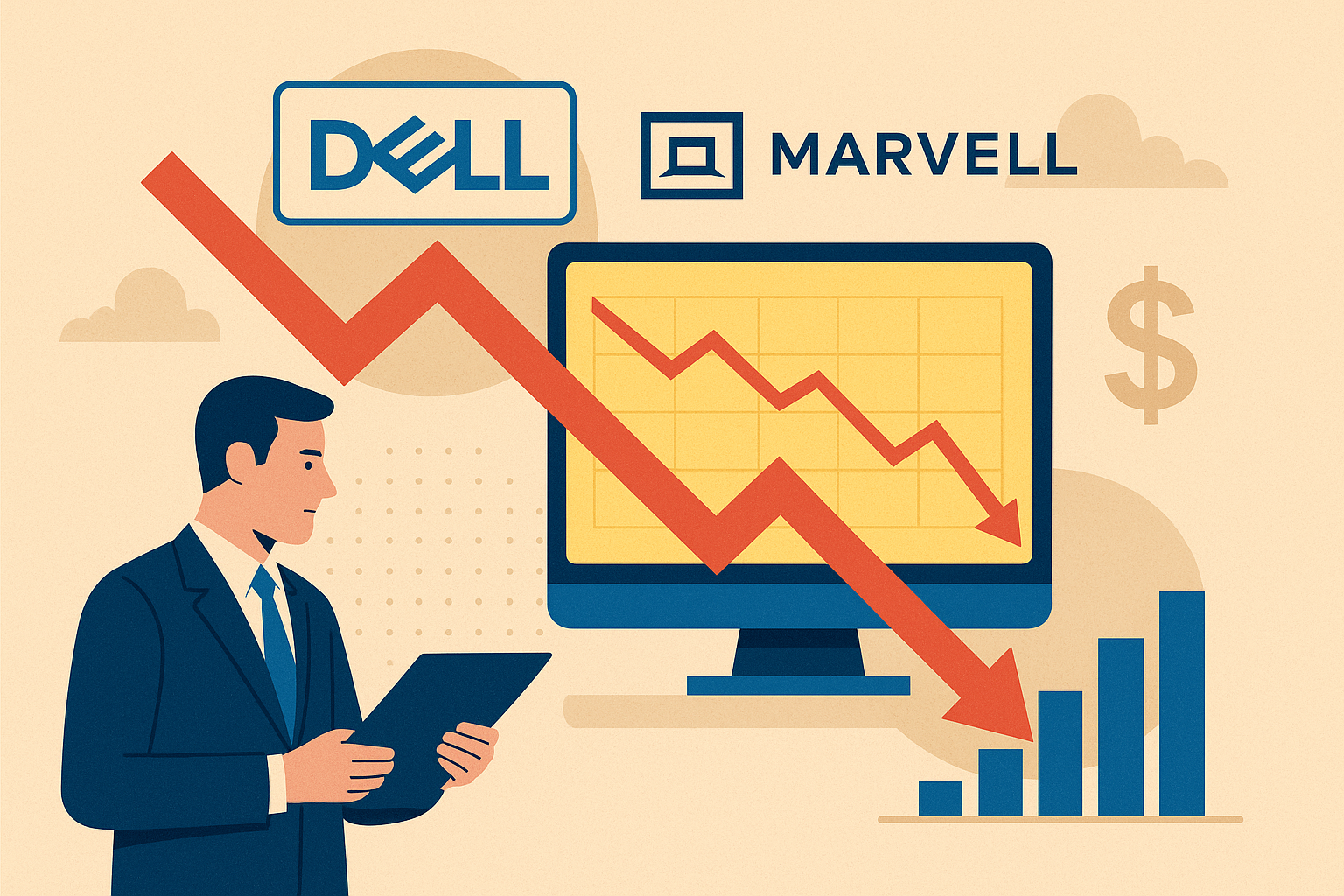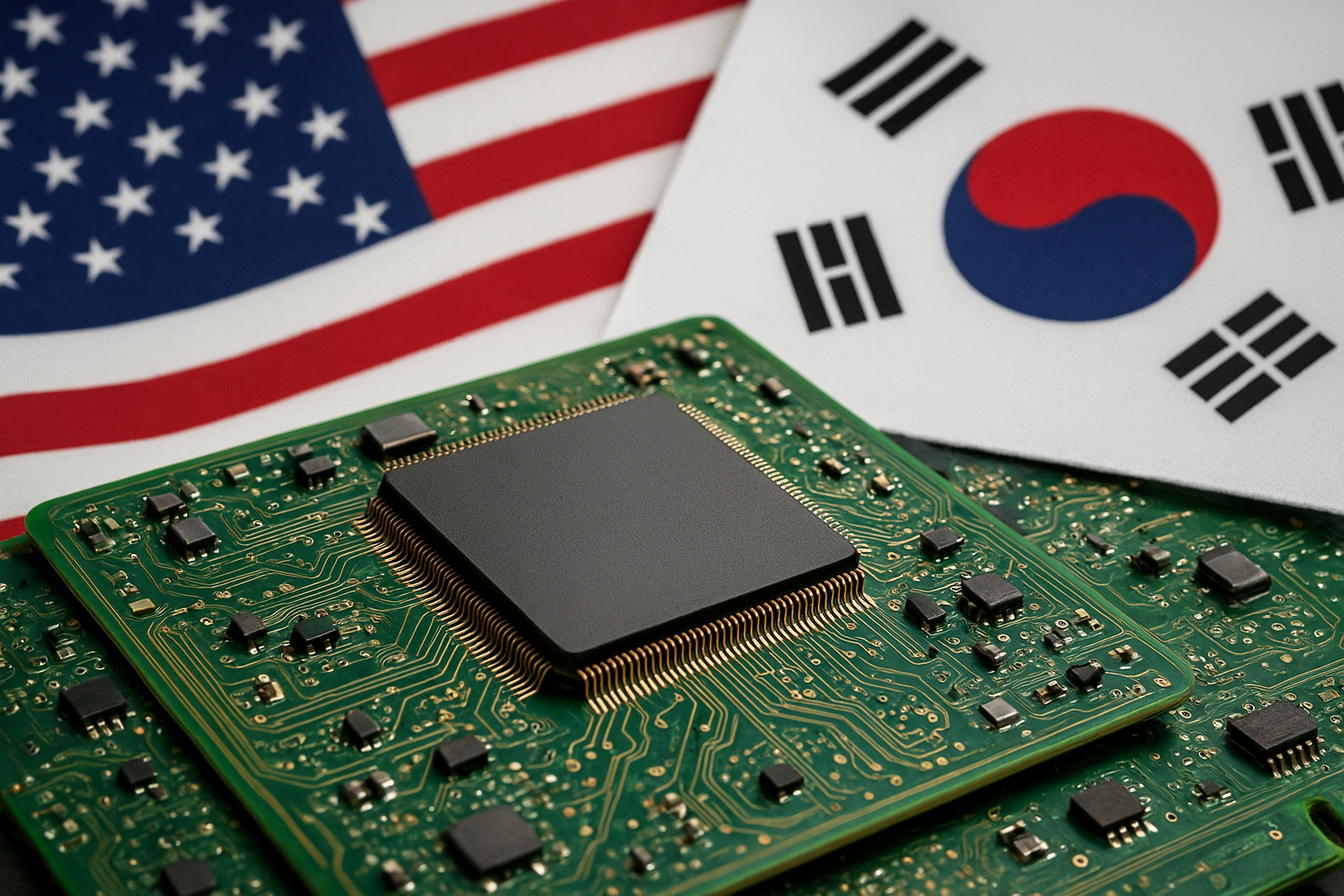Markets are on edge this morning as U.S. stock futures retreat ahead of July’s Personal Consumption Expenditures (PCE) index release—an inflation gauge closely watched by the Federal Reserve. Analysts expect headline inflation at 2.6% and core inflation at 2.9%, a slight uptick that could influence monetary policy and shape investor sentiment heading into September. Against this backdrop, two major tech names—Dell Technologies and Marvell Technology—delivered earnings updates that rattled markets and underscored the challenges facing both hardware and semiconductor players in a high-rate environment.
Why This Matters for Investors
Inflation remains the single most important variable for financial markets. A higher-than-expected PCE print could delay rate cuts and tighten financial conditions, putting pressure on growth-sensitive sectors like technology. The selloffs in Dell and Marvell illustrate how earnings volatility is being amplified by macro uncertainty.
Investors are increasingly weighing short-term earnings headwinds against long-term structural demand for AI infrastructure and digital transformation. While AI remains a powerful growth engine, execution risks and cautious spending trends are surfacing in corporate earnings.
Dell: Strong Past Quarter, Weak Outlook
Dell Technologies (NYSE: DELL) shares slid about 6% after management projected third-quarter earnings below Wall Street forecasts, despite beating Q2 estimates. According to Investopedia, Dell’s strong demand for servers and AI infrastructure in the second quarter was overshadowed by expectations of softer enterprise spending ahead.
The company has benefited from surging orders tied to AI server demand, but margins remain sensitive to input costs and corporate IT budget cycles. Investors may be concerned that the AI “upgrade cycle” is not yet broad-based enough to offset declines in traditional PC and enterprise segments.
Marvell: AI Demand Isn’t Enough
Marvell Technology (NASDAQ: MRVL) saw its shares plunge 14% after forecasting weaker-than-expected Q3 revenue. This comes despite robust demand for AI semiconductors, which had been a key driver of optimism in the stock.
The guidance suggests that AI-related demand, while strong, cannot yet insulate Marvell from cyclical softness in networking and storage chips. According to analysts cited by Investopedia, the company faces a near-term mismatch between rising AI orders and weaker spending in its other core businesses.
For investors, Marvell highlights the risk of over-concentration in the AI narrative—even strong players can stumble if broader segments lag.
The Bigger Picture: Inflation and Fed Policy
The PCE report due today could reinforce the Fed’s cautious stance. If inflation proves sticky, expectations for a September rate cut could weaken, pressuring rate-sensitive growth stocks.
- Headline PCE: Expected 2.6% year-over-year
- Core PCE: Expected 2.9% year-over-year
Even small deviations in these figures could swing markets, particularly in tech, where valuations remain elevated relative to historical averages. AP News noted that futures markets are already pricing in higher volatility ahead of the release.
Future Trends to Watch
- AI vs. Macro Headwinds: While AI infrastructure spending remains strong, investors should expect uneven adoption and cyclical pullbacks in adjacent hardware markets.
- Inflation’s Trajectory: A cooling inflation trend would be a tailwind for tech multiples; persistent inflation could spark further repricing.
- Enterprise IT Spending: Companies like Dell are bellwethers for corporate confidence—soft guidance signals that cost-cutting may overshadow innovation in the near term.
- Semiconductor Cycles: The AI boom doesn’t negate the cyclical nature of semiconductors. Diversification across cloud providers, hyperscalers, and chipmakers could smooth returns.
Key Investment Insight
Short-term volatility in Dell and Marvell does not diminish the long-term case for AI-driven infrastructure. However, the earnings warnings underscore that investors should remain selective. Large-cap chipmakers with diversified revenue streams, hyperscalers building AI data centers, and ETFs with balanced exposure across the AI ecosystem may offer better risk-adjusted opportunities.
For traders, today’s PCE release could spark market swings—offering tactical opportunities in both directions. Long-term investors, however, should look past short-term earnings disappointments and focus on the structural demand tailwinds in AI and digital transformation.
As markets digest both inflation data and corporate earnings, technology remains at the intersection of macroeconomic pressures and transformative growth. Investors who can navigate this duality—balancing caution with conviction—may find themselves well-positioned in the months ahead.
Stay with MoneyNews.Today for daily insights into how macro trends, earnings, and technology shifts are shaping tomorrow’s investment opportunities.





